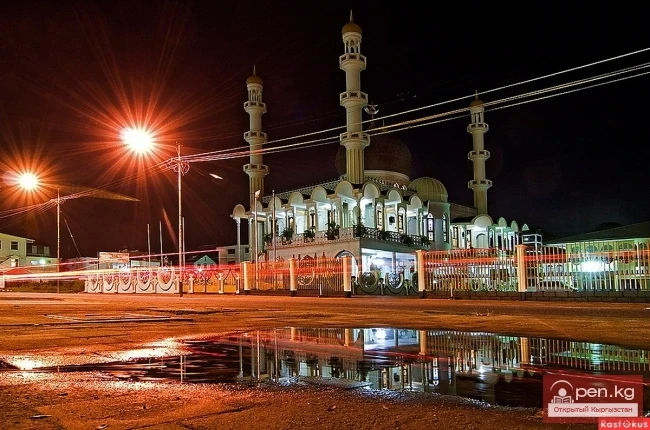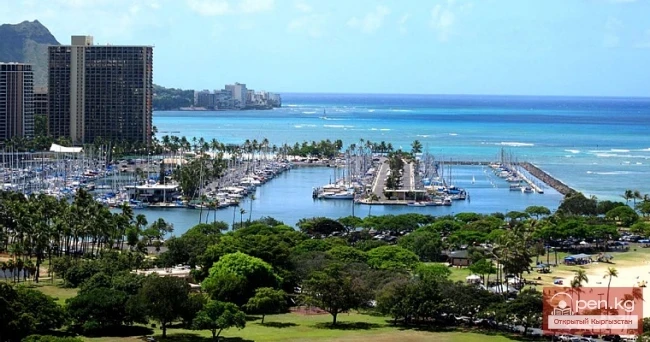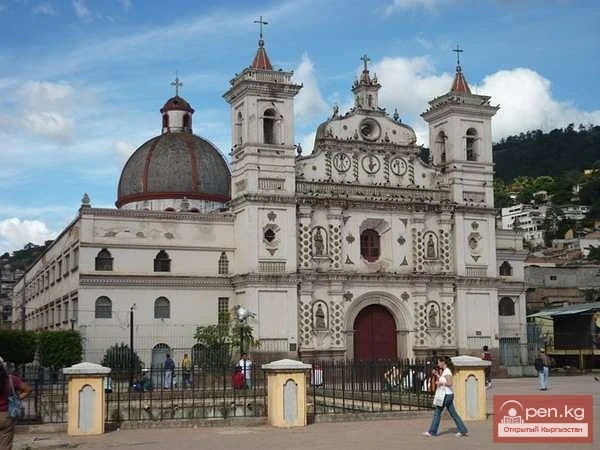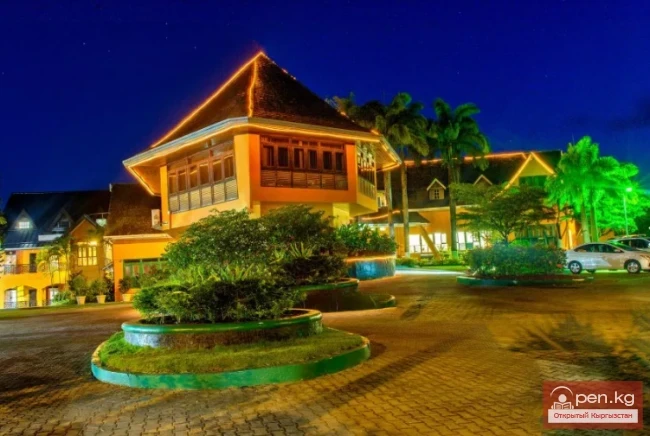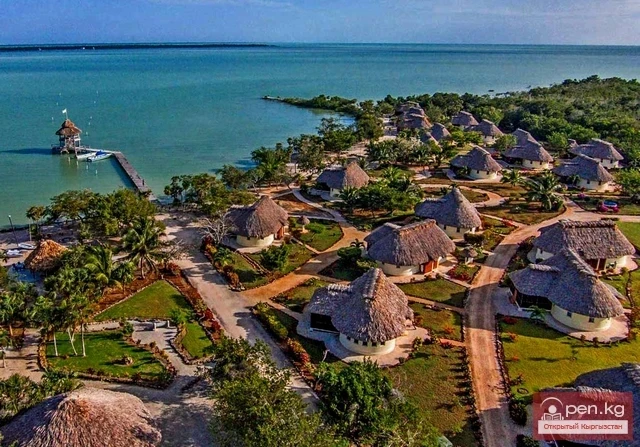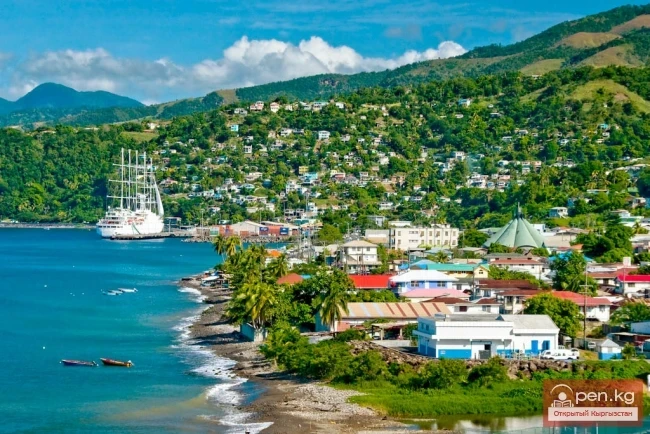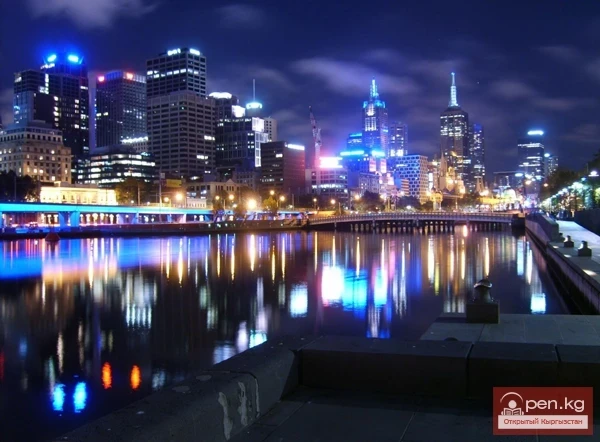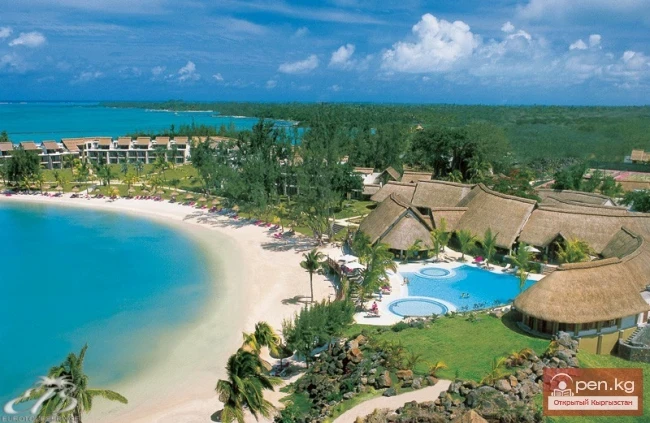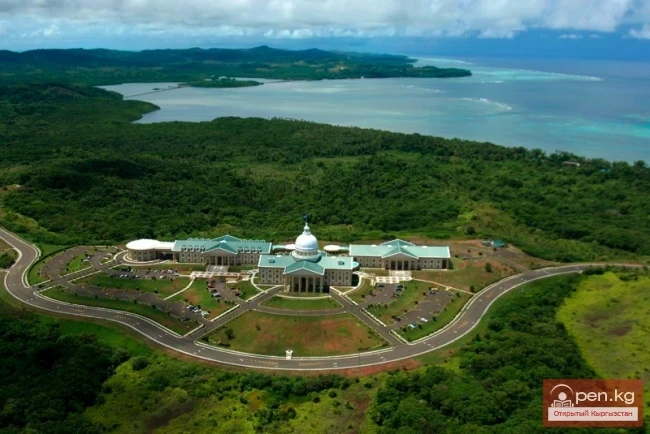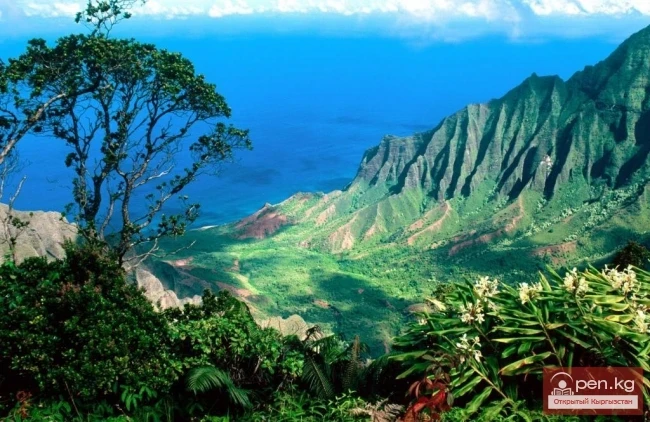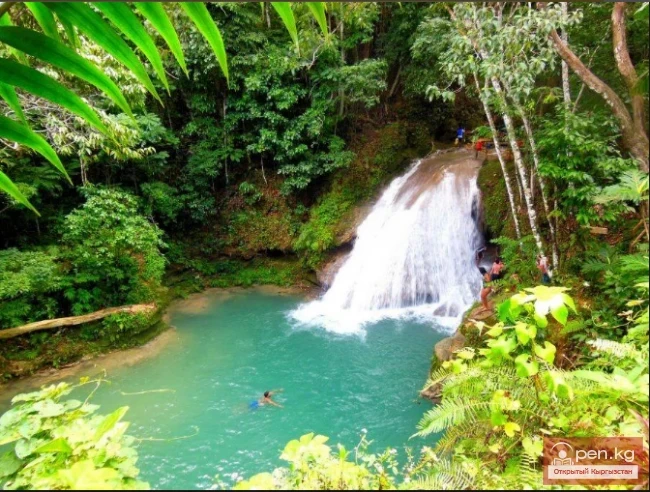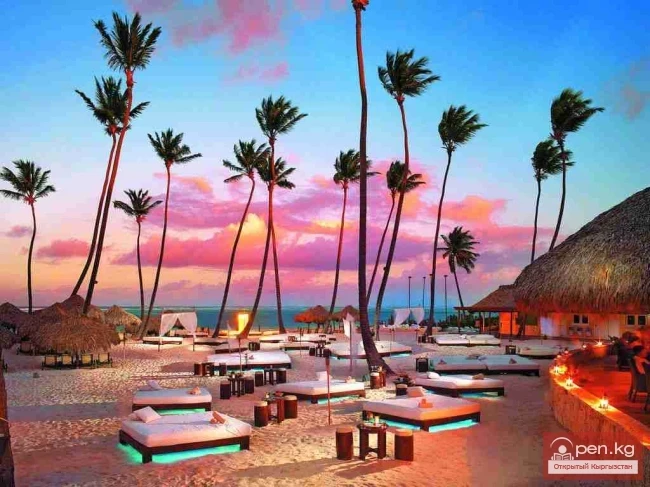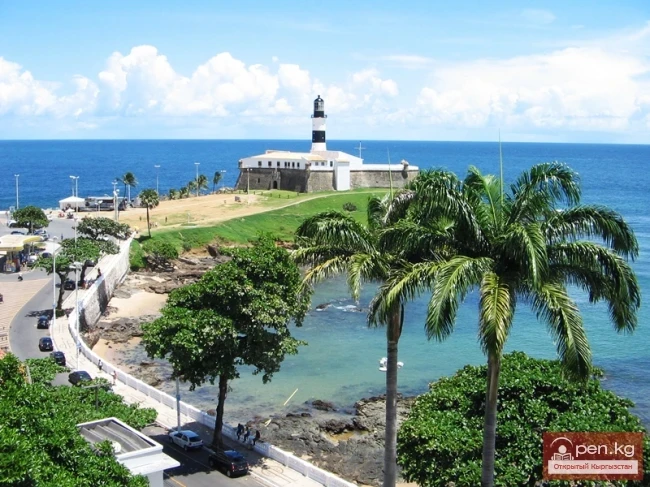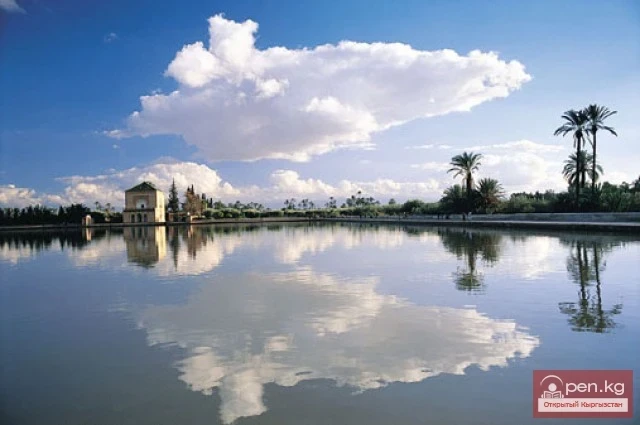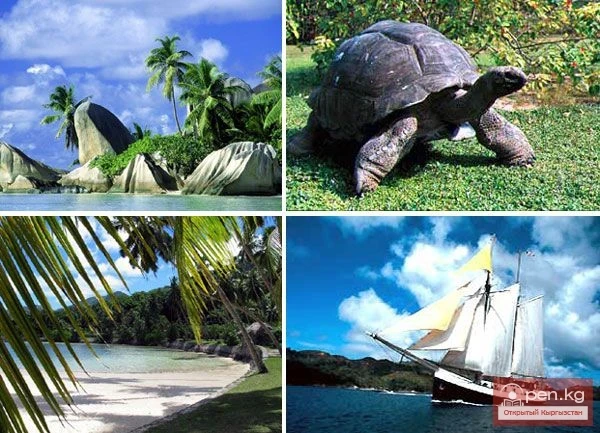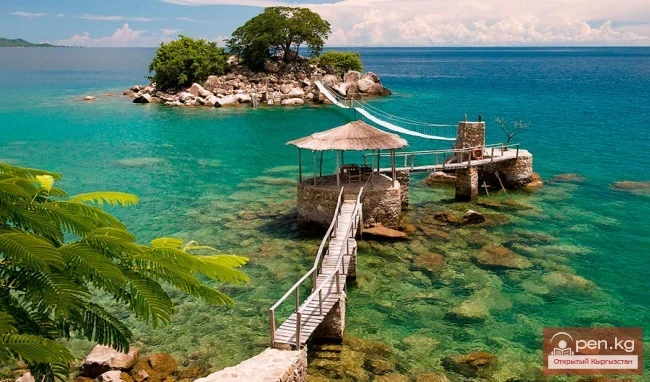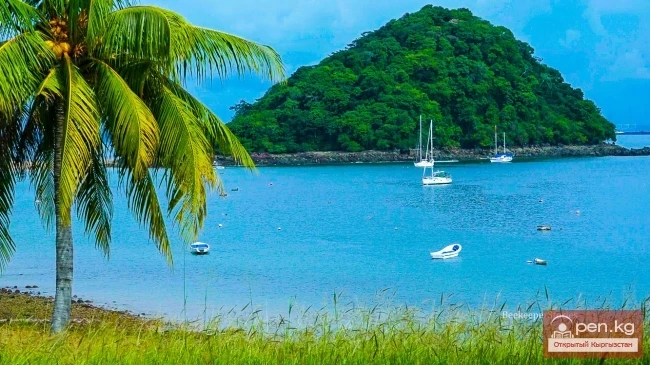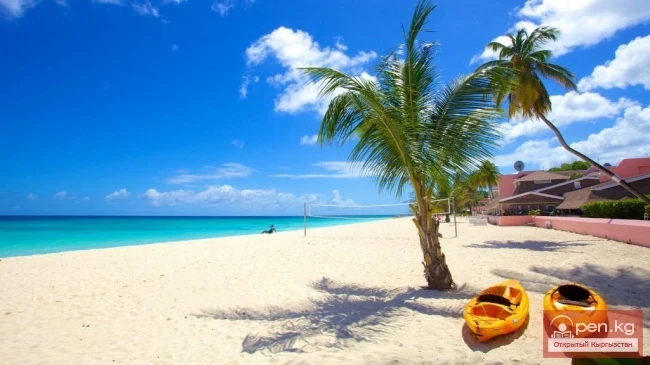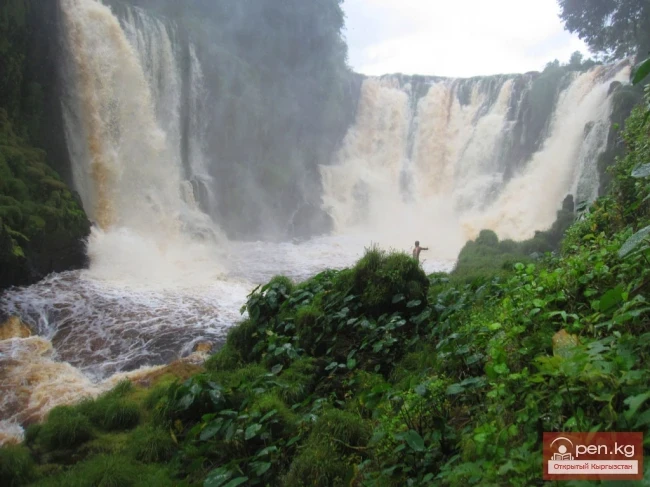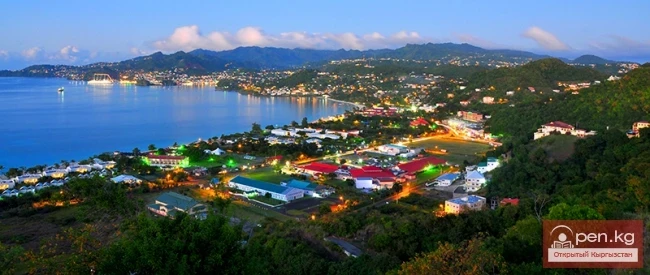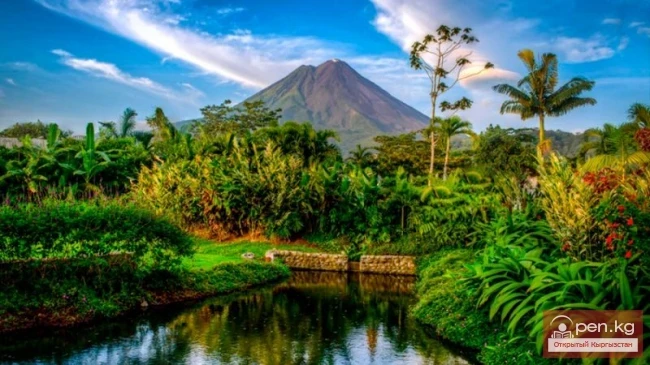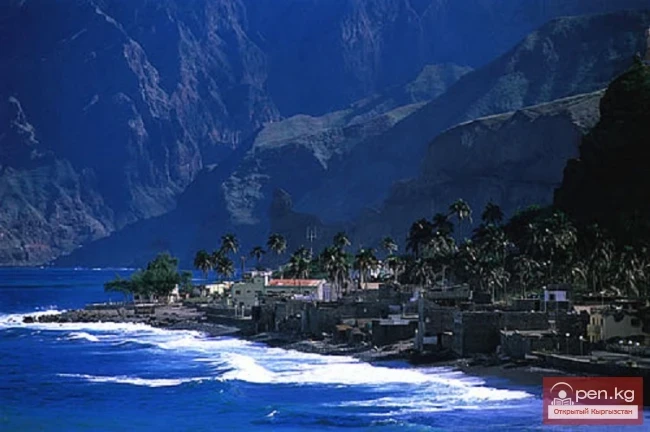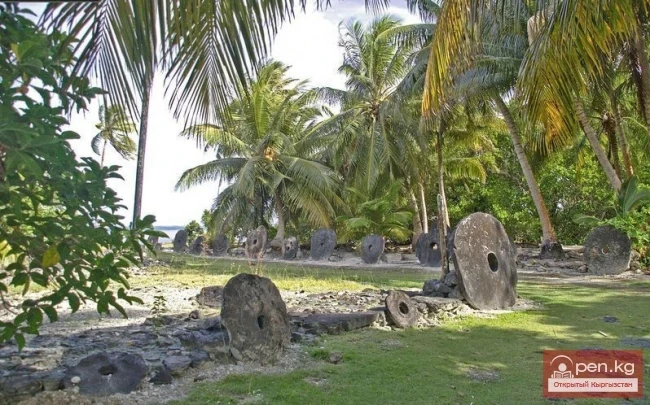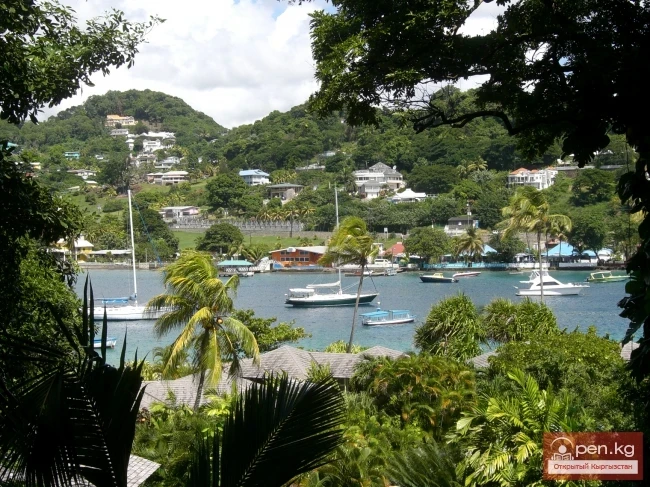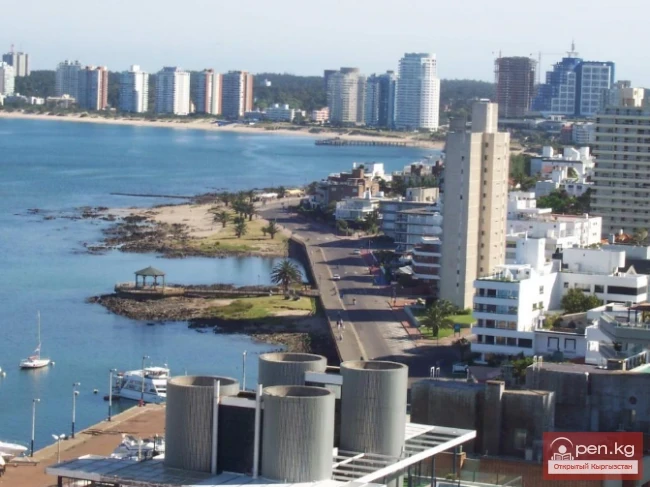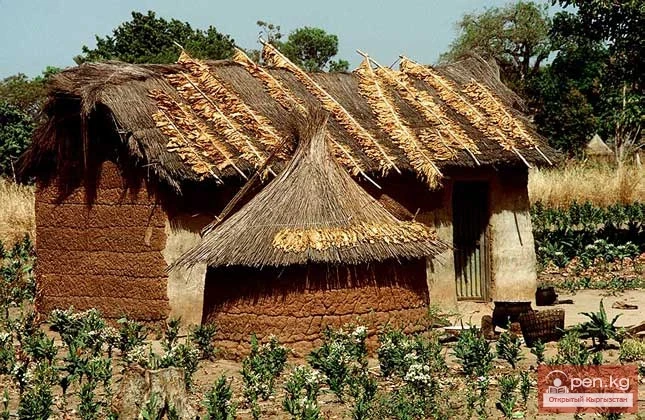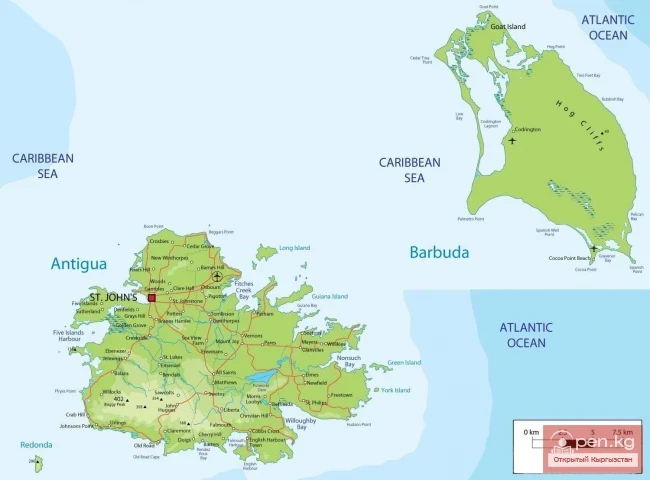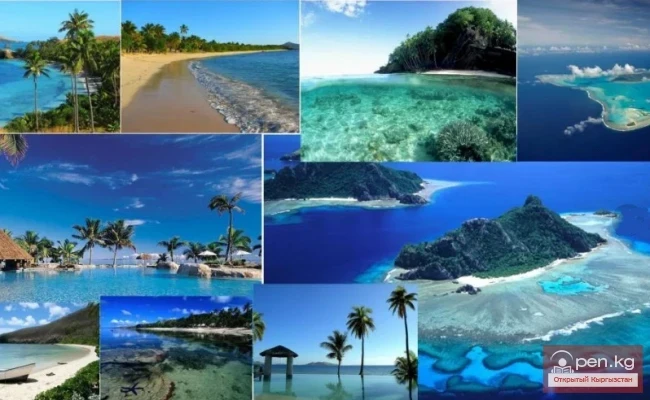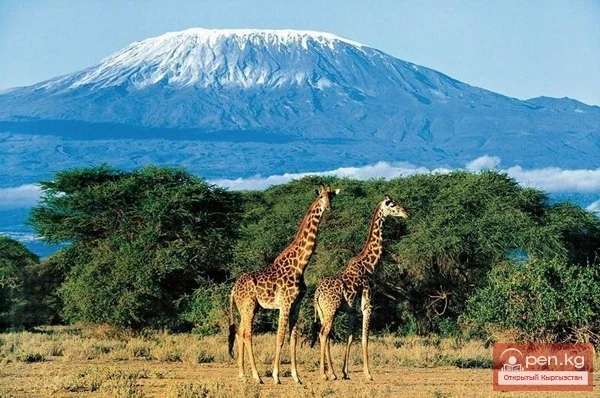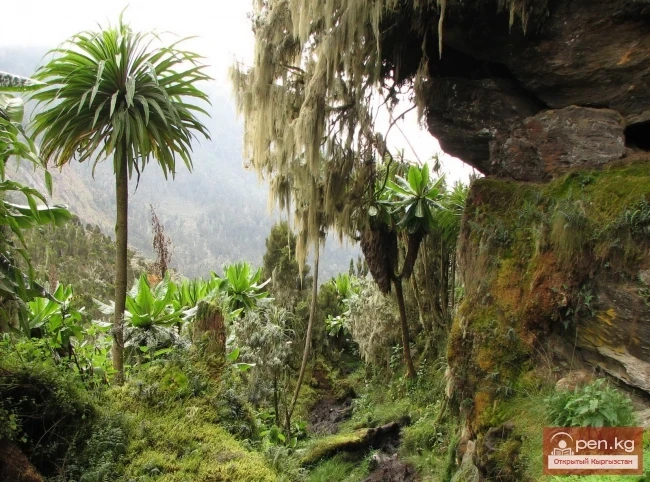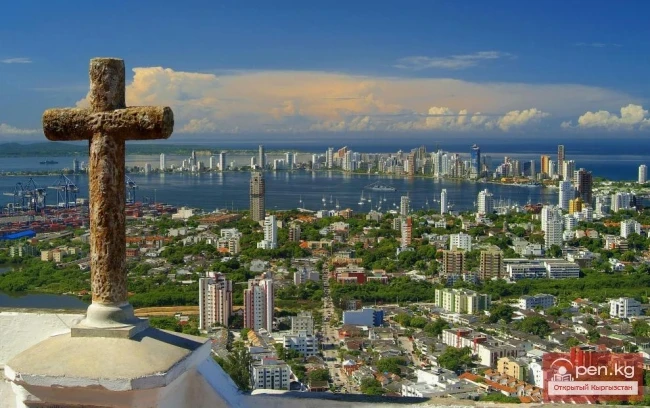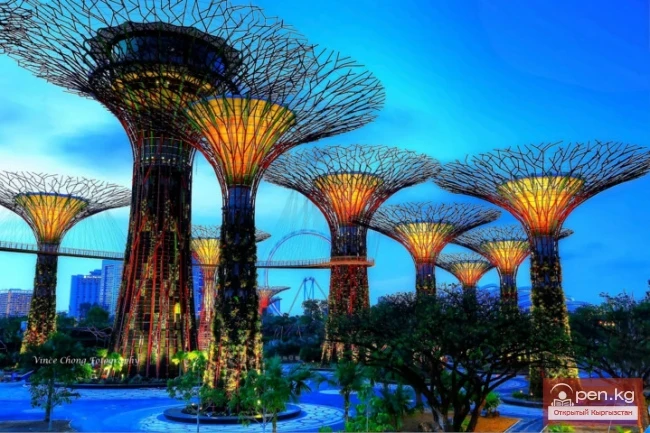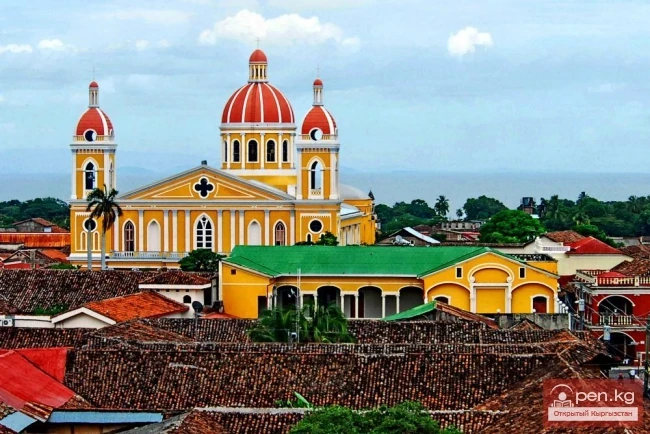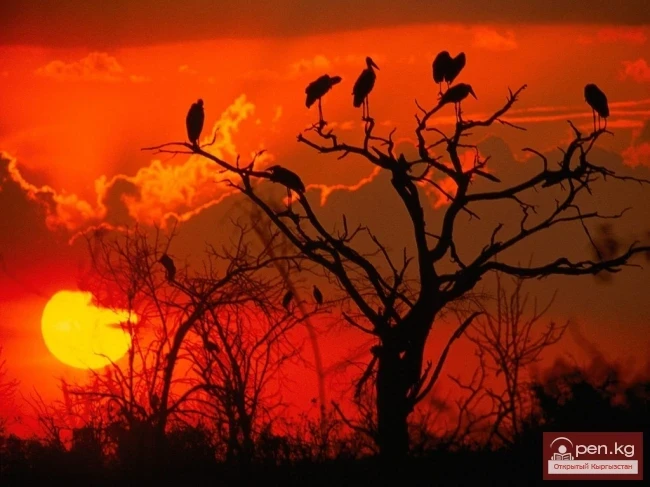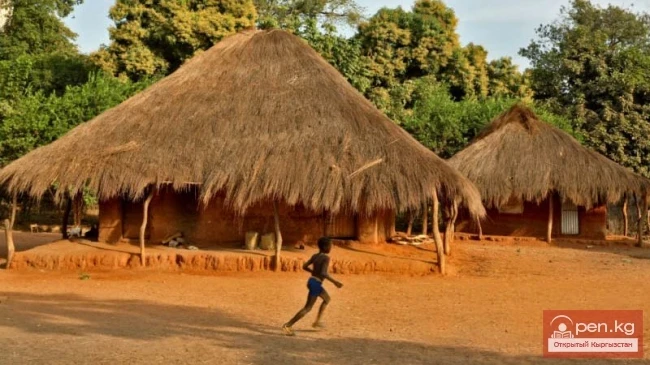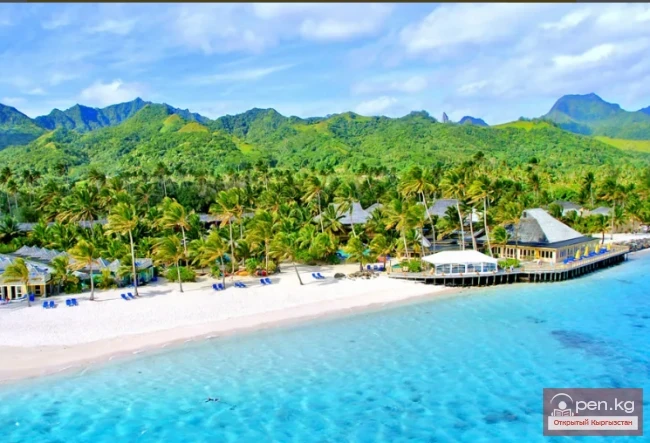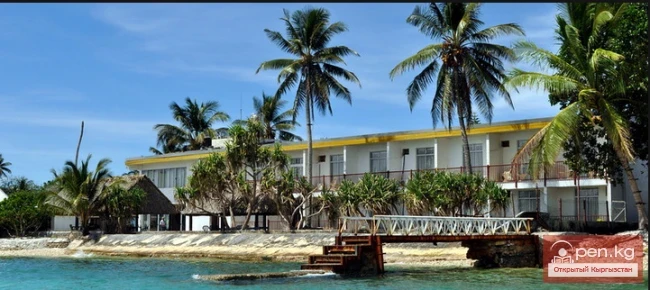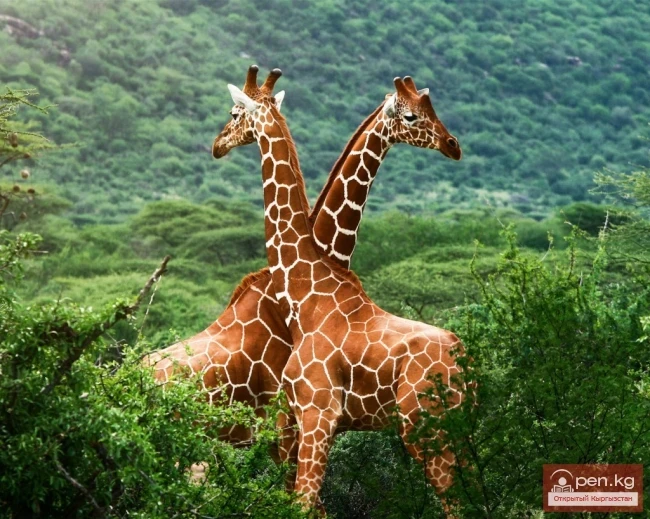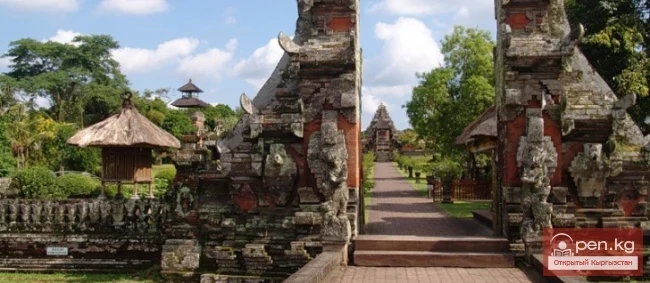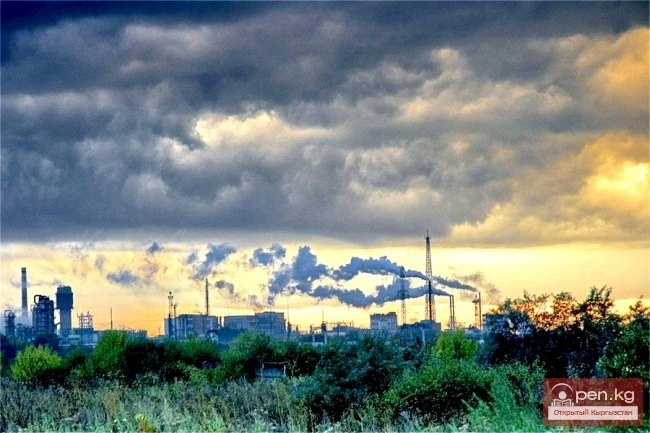SURINAME. Republic of Suriname
A country in the northeast of South America. Area — 163.3 thousand km². Capital - Paramaribo (200 thousand). Administrative-territorial division - 10 districts. Population - 436 thousand (2004), including Indo-Pakistanis (37%), Creoles (31%), Indonesians (15.3%), Blacks (10.3%), Indigenous people (2.6%), Chinese (1.7%). Official language - Dutch, English is also widely spoken, and most Surinamese speak local creole languages. Religion - Catholicism, Protestantism, Hinduism, Islam, and others. Currency - Surinamese dollar = 100 cents.
Has diplomatic relations with the Russian Federation (established with the USSR on November 25, 1975).
National holiday - November 25 - Independence Day (1975).
Suriname is a republic. The constitution, approved by a national referendum on September 30, 1987, is in effect. The head of state is the president (since 2000 - Ronald Ronald Venetiaan), elected by parliament (by a majority of 2/3 of deputies) for a term of 5 years (reelected in August 2005). Legislative power belongs to the unicameral National Assembly (51 deputies), elected by universal direct and secret ballot for a term of 5 years (elected in 2005). The president is also the head of government - the Council of Ministers.
Main political parties: New Front for Democracy and Development (consists of the People's Front for Development, the National Party of Suriname, the United Reform Party, and the Javanese Party Pertjajah Luhur), which represents, in particular, the interests of the economically influential Indian and Indonesian diasporas. Following the elections on May 25, 2005, it received 24 seats in the National Assembly; its leader R. Venetiaan was elected president of the country. The main opposition force is the National Democratic Party (NDP), which has 15 seats in parliament, and the People's Union for Prosperity - 5 seats.
Trade union organizations: Progressive Trade Union Federation "C-47" - established in 1970, Trade Union Workers Organization, Council of Trade Unions of Suriname.
The first Europeans to land in Suriname were the Spanish, led by Christopher Columbus, in 1499. It was a possession of Spain; from the early 17th century, the territory began to be settled by the English. Since 1667, according to a treaty between the Netherlands and Great Britain, the territory of Suriname passed to the Netherlands ("Dutch Guiana") in exchange for its possessions in North America (the territory of present-day New York). In 1954, Suriname gained autonomy within the Kingdom of the Netherlands. The country's independence was proclaimed on November 25, 1975. In February 1980, the military, led by D. Bouterse, seized power in the country. In November 1987, the Front for Democracy and Development, the electoral bloc of the leading parties, won the general elections. A coalition government was formed. In the general elections in April 1991, the NDP won (21 seats in parliament), and its candidate J. A. Weidenbos became president. A coalition government was formed. Since 2000, the coalition bloc New Front for Democracy and Development (leader - R. R. Venetiaan) has been in power.
Suriname is a member of the UN (since 1975), OAS (since 1977), LAES (since 1979), and the Amazon Pact. Since 1979, it has been a participant in the Non-Aligned Movement.
The basis of Suriname's economy is the mining industry (bauxite production - about 4 million tons per year), the production of alumina and aluminum (more than 1.6 million tons, 2004). Oil production is rapidly developing (12 thousand barrels per day in 2004). There are reserves of gas, manganese, nickel, and iron ores, and gold. The bauxite mining industry is controlled by American and Dutch companies. The share of the mining sector in GDP is 25%, with proven bauxite reserves of 8 billion tons.
GDP in 2004 amounted to 1.2 billion USD (annual growth of 5.3%).
Main agricultural crops: rice, sugarcane, citrus fruits, coffee, cocoa, bananas, coconuts. Livestock, fishing, and seafood processing, as well as the processing of valuable timber species, are well developed (about 93% of Suriname's territory is covered by tropical forests). Agriculture provides 70% of the country's food and raw material needs.
The length of roads is 4.5 thousand km, of which about 1200 km are paved. Paramaribo is the largest sea and air port in the country.
Main export items: bauxite, alumina (about 80% of export value), gold, rice, timber, oil. The products of the bauxite mining and processing industry account for about 80% of foreign exchange earnings. Raw materials, industrial goods, machinery and equipment, and food are imported. Main trading partners: EU countries, USA, Trinidad and Tobago. Trade turnover - 1.32 billion USD (2004). External debt - 552 million USD. Gold and foreign exchange reserves - 100 million USD (2004). The inflation rate at the end of 2004 was 9.9%.
In Paramaribo, there is a state university where law, medicine, and socio-economic sciences are taught.
Newspapers are published in Dutch ("West", "Ware Tijd"). Political parties do not have their own printed organs. Television stations and 12 radio stations operate.
